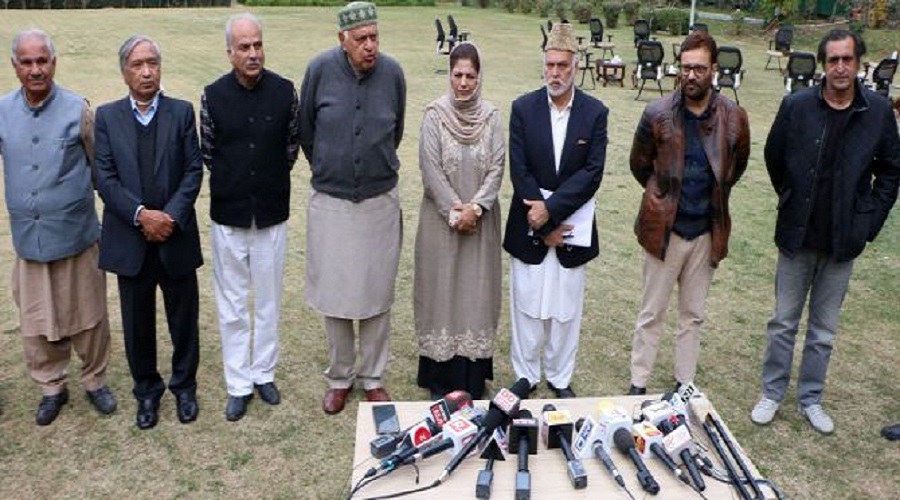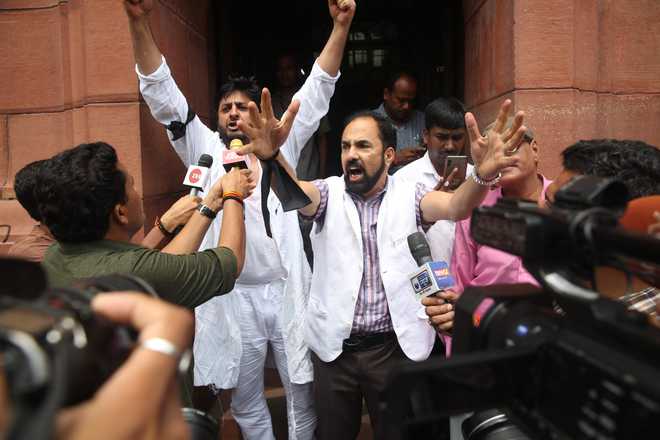Throwback 1994: Kashmir Losing its Rajya Sabha Representation

Arif Nazir is a Staff Writer at the Mountain Ink.
Four JK lawmakers in Rajya Sabha are retiring in coming weeks. In absence of J&K Legislative Assembly that is the electoral institution via which the new members would be elected, the speculation and the debate within the political circles remain about the empty benches in the Indian parliament.
Before Kashmir’s ‘abrogated’ political landscape would create a vacuum in Indian upper house, the region’s tumultuous past under the direct control of Delhi had faced a similar situation.
It was in 1994 when Kashmir was under president’s rule and had no representation in the upper house of Indian Parliament.
“During the peak militancy era of the early 90s, ‘democracy’ remained suspended and there was no institutional mechanism to hold assembly elections for a few years,” Prof. Noor A. Baba told Mountain Ink (MI).
“With the result, the erstwhile state couldn’t elect any representative for the Indian parliament.”
But that no-representation of the time held no meaning, the professor added.
Support Our Journalism
You are reading this because you value quality and serious journalism.
But, serious journalism needs serious support. We need readers like you to support us and pay for making quality and independent journalism more vibrant.
“Neither did the representation that went to Rajya Sabha after 1996 assembly elections which cleared decks for electing parliament members,” he said.
Earlier, to fill the electoral political vacuum in the valley, Delhi had recalled its dark horse, a year after he fiercely lobbied for India in the 1995 United Nations showdown on Kashmir resolution.
With Farooq Abdullah’s help, Delhi finally ended the political void created by the martial management of the defiant region filled with boycott mood.
Now, as Abdullah’s son is currently warming up to North Block for ending political paralysis in the region, many see it a clear déjà vu.
“History is undoubtedly repeating itself with some old cards but in a different scenario,” Prof Baba said. “However, after snatching every empowering provisions and the statehood of J&K, having or not having a representation doesn’t make any difference. Further, the gulf in Gupkar Alliance won’t make the new political projecting easy.”

Political analyst Dr. Sheikh Showkat Hussain said when Article-370 and 35-A were deliberated, there was at least some space given to those who held any sort of representation in the Indian Parliament.
“But whatever space they held, they didn’t avail it,” Dr Hussain told MI.
In fact, he said, the case of Kashmir has never been represented in the Indian Parliament by “Delhi’s handpicked men”.
“Picking men based on their face value, posture or family background is what Delhi has been doing in Kashmir since long,” Hussain said.
“After its new political investment on fresh faces during DDC elections failed, it started engaging with old hands once again.”


However, senior scribe Zafar Meraj negates any significance of the issue given the current scenario.
“Not having a representation in the upper house is a constitutional matter that doesn’t and hasn’t had a political implication or relevance,” Zafar told MI.
For representation, a legislative assembly is needed. And in absence of statehood and elections, it doesn’t seem possible.
“Having a legislative assembly in Kashmir seems a far-fetched thing as of now,” Zafar said. “However, there’s a hope, and that’s on the pending Supreme Court’s decision.”
To help us strengthen the tradition of quality reading and writing, we need allies like YOU. Subscribe to us.
Mountain Ink is now on Telegram. Subscribe here.
Become Our Ally
To help us strengthen the tradition of quality reading and writing, we need allies like YOU. Subscribe to us.










